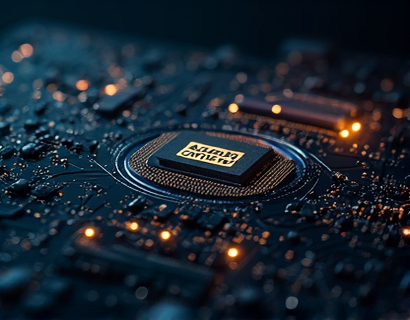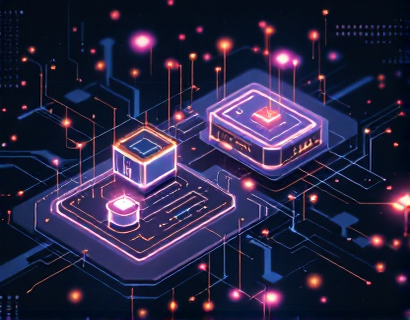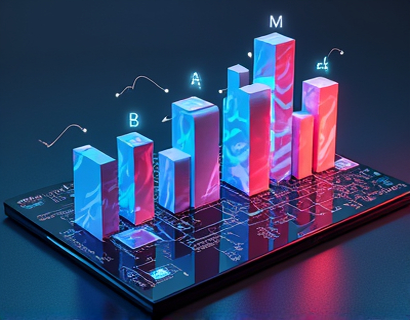Blockchain Oracle Management: Revolutionizing Decentralized Applications with Advanced Data Integration and Smart Contract Solutions
In the rapidly evolving landscape of blockchain technology, the role of oracles has become increasingly pivotal, especially for decentralized applications (dApps). Oracles serve as the bridge between the blockchain and the external world, providing essential data and enabling smart contracts to interact with real-world information. However, traditional oracle management poses significant challenges, including data reliability, security, and integration complexity. This article delves into the transformative software solutions that are revolutionizing oracle management, focusing on advanced data integration and smart contract capabilities. These innovations are crucial for developers and businesses aiming to harness the full potential of blockchain technology.
The core challenge in oracle management lies in ensuring that the data fed into smart contracts is accurate, timely, and secure. Traditional oracles often rely on centralized entities, which can introduce single points of failure and trust issues. To address these challenges, modern solutions employ decentralized oracle networks that aggregate data from multiple sources, enhancing reliability and reducing the risk of manipulation. These networks utilize cryptographic techniques to verify and validate data, ensuring that only trustworthy information reaches the smart contracts.
One of the key advancements in oracle management is the development of decentralized oracle protocols. These protocols leverage the power of blockchain to create a trustless environment where data providers and consumers can interact without intermediaries. By using incentive mechanisms, these protocols encourage honest data provision and penalize malicious behavior. For instance, a decentralized oracle network might reward nodes that consistently provide accurate data while penalizing those that submit false information. This approach not only improves data quality but also fosters a more robust and resilient ecosystem.
Another critical aspect of advanced oracle management is the seamless integration of external data sources. Developers often face the challenge of connecting smart contracts to various APIs and data feeds, each with its own set of protocols and requirements. Modern software solutions simplify this process by providing abstracted interfaces that hide the complexity of underlying data sources. These interfaces allow developers to query data from multiple providers using a unified API, reducing development time and minimizing errors. This abstraction layer ensures that smart contracts can access a wide range of data, from financial markets to IoT sensor readings, without the need for extensive custom integration.
Data latency is another significant concern in oracle management, as delays in data transmission can render smart contracts ineffective or even vulnerable to attacks. To mitigate this, advanced oracle solutions implement sophisticated caching and prediction mechanisms. These mechanisms store frequently accessed data locally, reducing the need for real-time queries and ensuring that smart contracts have access to up-to-date information with minimal latency. Additionally, predictive models can estimate future data points based on historical trends, further enhancing the responsiveness of dApps.
Security remains a paramount concern in the realm of oracle management. Smart contracts are only as strong as the data they receive, and compromised oracles can lead to severe consequences, including financial losses and data breaches. To address these risks, modern oracle solutions incorporate multi-layered security measures. These include data encryption both in transit and at rest, secure key management systems, and regular audits to identify and mitigate vulnerabilities. Furthermore, the use of zero-knowledge proofs and other privacy-preserving techniques ensures that sensitive data remains confidential while still being verifiable.
The integration of oracles with blockchain-based services is another area where recent advancements have made significant strides. Blockchain services, such as decentralized finance (DeFi) platforms, non-fungible tokens (NFTs), and supply chain management systems, rely heavily on accurate and timely data from oracles. By leveraging advanced oracle management solutions, these services can operate more efficiently and securely. For example, in DeFi, oracles provide real-time market data, enabling automated trading and lending protocols to function seamlessly. In supply chain management, oracles can track the movement of goods and verify the authenticity of products, ensuring transparency and trust throughout the process.
To fully unlock the potential of blockchain technology, developers and businesses need access to robust and flexible oracle management platforms. These platforms should offer a range of features, including multi-source data aggregation, real-time data streaming, and customizable data validation rules. By providing a comprehensive suite of tools, these platforms empower developers to build more sophisticated and reliable dApps. Moreover, they should support a variety of blockchain networks and protocols, ensuring interoperability and broad adoption.
One of the most promising developments in oracle management is the emergence of autonomous oracle networks. These networks operate without central control, relying on self-organizing nodes that dynamically adjust to maintain network integrity and data quality. Autonomous networks use game theory and economic incentives to maintain a balanced and trustworthy data feed. This decentralized approach not only enhances security but also reduces the risk of censorship and manipulation, making it an attractive solution for privacy-sensitive applications.
Another innovative approach is the integration of oracles with machine learning and artificial intelligence. By combining data from oracles with AI algorithms, smart contracts can make more informed decisions and adapt to changing conditions in real-time. For instance, in predictive maintenance for industrial equipment, oracles can provide sensor data, while AI models analyze this data to predict failures and schedule maintenance proactively. This synergy between blockchain and AI opens up new possibilities for intelligent and autonomous systems.
The impact of advanced oracle management extends beyond technical benefits; it also has significant economic implications. By reducing the costs associated with data acquisition and integration, these solutions make blockchain-based services more accessible and cost-effective. This democratization of access can spur innovation and growth in various industries, from finance and healthcare to logistics and manufacturing. As oracle management continues to evolve, we can expect to see a proliferation of new use cases and applications that leverage the full power of blockchain technology.
In conclusion, the future of decentralized applications hinges on the advancement of oracle management solutions. By addressing the challenges of data reliability, security, and integration, these solutions enable smart contracts to interact with the real world in a trustless and efficient manner. As the ecosystem matures, we can anticipate even more sophisticated tools and platforms that will further enhance the capabilities of blockchain technology. For developers and businesses, embracing these advancements is essential to stay competitive and unlock the true potential of decentralized systems.










































